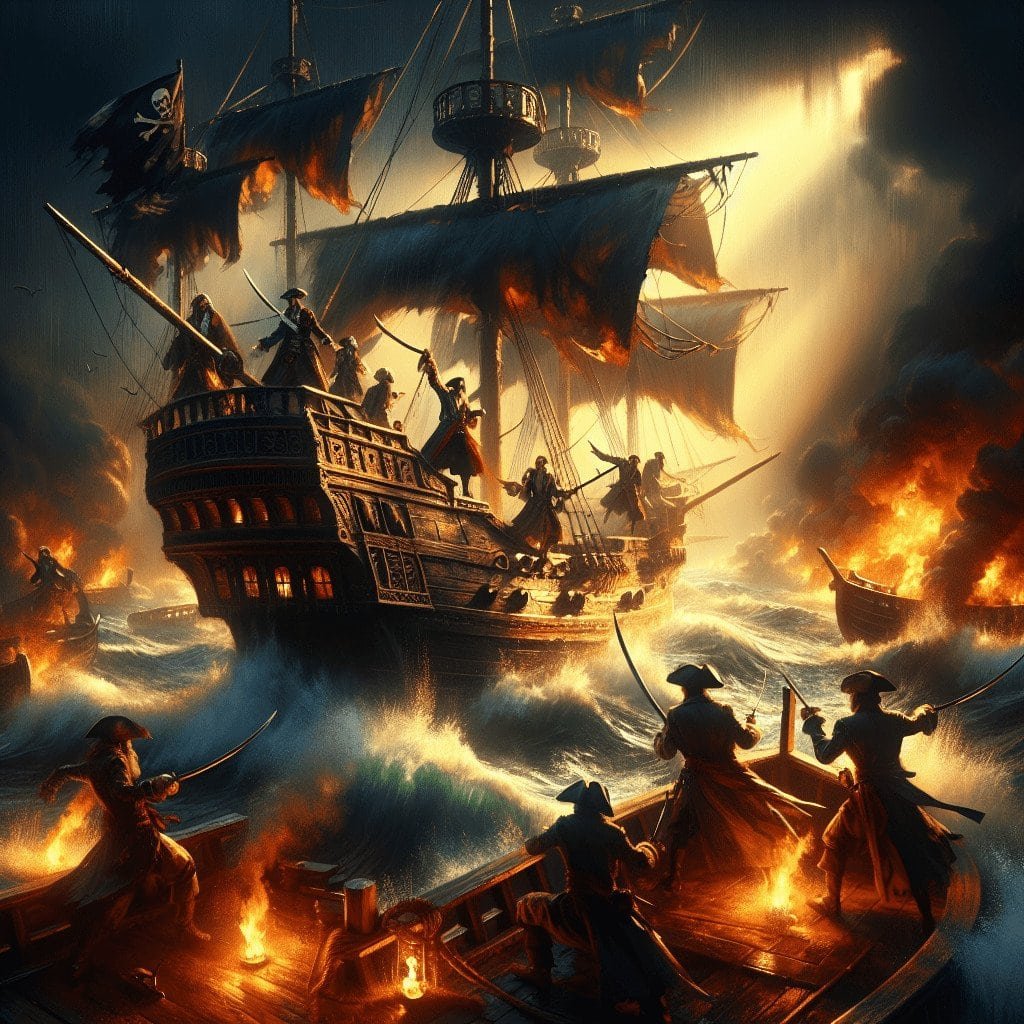Did Pirate Kings Exist?
The lore of pirates, filled with tales of swashbuckling adventures and treasure-laden ships, often brings to mind the image of a pirate king— a singular, commanding figure ruling over the lawless seas. But how much of this image is rooted in historical fact? This article delves into the existence of pirate kings, exploring historical records and accounts to shed light on their real-life counterparts.
The Concept of a Pirate King
The idea of a pirate king is not merely a product of modern pop culture but has historical undertones linked to certain notorious figures in piracy’s golden age. The term “pirate king” itself might be a bit misleading, as it suggests a monarchical status that pirates, known for their rebellious nature against all forms of hierarchy, would unlikely endorse. However, there were influential pirate leaders who wielded significant power and influence over territories and other pirates.
Notable Figures Resembling Pirate Kings
- Henry Every: Often dubbed as “The King of Pirates” by his contemporaries and later historians, Every conducted what was one of the most profitable pirate raids in history. His most famous capture was of the Mughal ship Ganj-i-Sawai, which yielded an enormous treasure. His success led to a worldwide manhunt, but he vanished after 1696, becoming a legendary figure in pirate lore.
- Blackbeard (Edward Teach): Perhaps one of the most iconic figures to be associated with the image of a pirate king, Blackbeard’s reign over the
seas was marked by his fearsome image and the formidable control he maintained over his crew and numerous vessels. He even blockaded the port of Charleston, South Carolina, effectively taking the whole town hostage—a feat that few pirate leaders could boast.
- Bartholomew Roberts: Known as “Black Bart,” Roberts was noted for his strict and effective form of pirate governance. He captured and plundered over 400 ships, a record in pirate history, and his pirate code was famously strict, helping maintain discipline and order among his crew.
Analysis of Pirate Governance
While individual pirates rose to significant power, the overall governance structure among pirates was predominantly democratic. Pirate crews often operated under a set of agreed-upon rules known as the pirate code, which included voting rights on important decisions and even a form of checks and balances on the captain’s power. This democratic nature stands in contrast to the idea of a pirate king who rules with absolute authority.
Myth vs. Reality
The romanticized image of a pirate king ruling the seas with an iron fist is largely a myth. While there were undoubtedly powerful pirate leaders, their authority was frequently checked by their crews, and their governance structures were far more democratic than monarchical. The term “pirate king” is thus more a creation of folklore and popular media, inspired by real figures whose deeds were often exaggerated in the retelling.
Conclusion: The Legacy of Pirate Kings
In conclusion, while pirate kings in the sense of absolute rulers did not exist, the seas did see the rise of influential pirate leaders who commanded great fleets and accumulated vast wealth. These figures, such as Henry Every, Blackbeard, and Bartholomew Roberts, have inspired the myth of the pirate king, a testament to their formidable presence in maritime history. The true story of these pirates, blending democracy and dictatorship, tells a more complex tale than the simple narrative of a pirate king might suggest.
Understanding the democratic underpinnings of pirate crews provides a more nuanced view of piracy and challenges the traditional portrayal of pirate governance. The legacy of these pirate leaders, embellished though it may be, continues to captivate and intrigue, offering valuable insights into the blend of myth and reality that characterizes our understanding of pirate lore.
